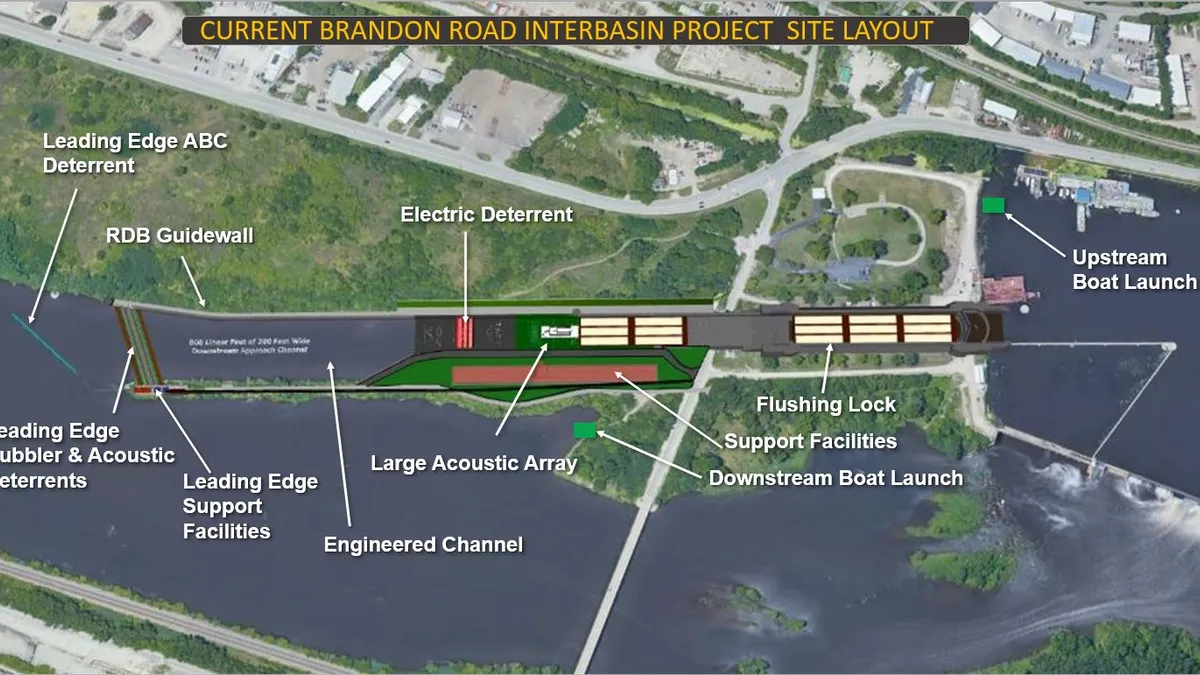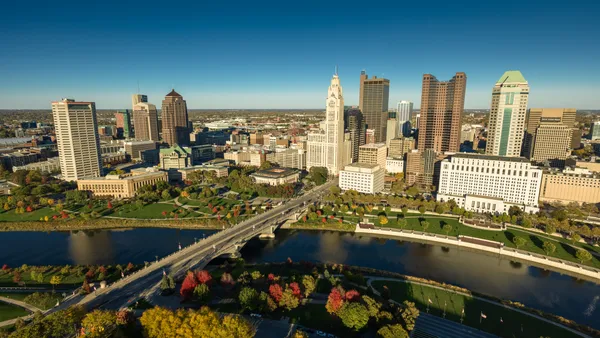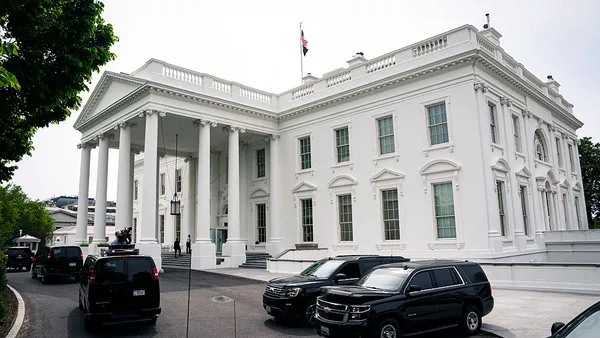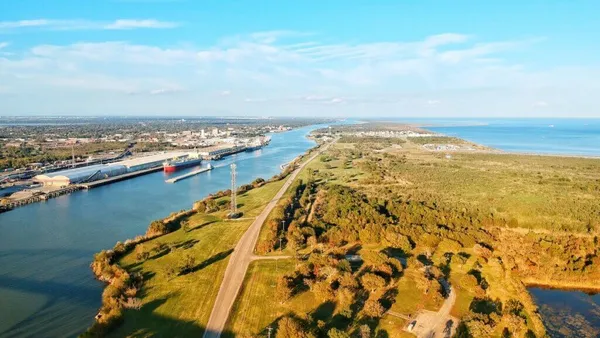Dive Brief:
- The states of Michigan and Illinois signed an agreement with the U.S. Army Corps of Engineers to cosponsor construction of the $1.15 billion Brandon Road Interbasin Project, which will prevent invasive carp and other aquatic nuisance species from entering the Great Lakes, per a July 1 news release from Michigan Gov. Gretchen Whitmer’s office.
- As part of the agreement, the project will receive $274 million in federal and $114 million in state funding for the first of three phases of work, according to the release. Work will center around the Brandon Road Lock and Dam near Joliet, Illinois, which is a critical pinch point to stop invasive fish from moving into the Great Lakes.
- As work moves forward into the construction phase, contracts for fabrication, continued design, leading edged deterrents and bedrock removal are now slated for solicitation within the coming weeks, according to USACE’s Rock Island District.
Dive Insight:
The USACE said that if left unchecked, carp could outcompete native species and greatly harm the ecosystems of the entire Great Lakes region and its over $20 billion fishing and boating industries.
“We are excited to be entering this next phase of the project and are committed to preventing the upstream movement of invasive carp and other aquatic nuisance species into the Great Lakes,” said Col. Aaron Williams, the Rock Island District commander for USACE, in the news release.
Michigan and other Great Lakes states have been working with the U.S. Army Corps of Engineers on this project since 2011, wrote the governor’s office.
The Brandon Road Interbasin Project will create structural and non-structural deterrents for the invasive species to dissuade them from moving upstream, according to the USACE’s page. Structural measures include technologies such as a flushing lock, which is an engineered channel with an electric barrier, underwater acoustic deterrent, air bubble curtain and an automated barge clearing deterrent.
Non-structural measures are focused on the people who use the Great Lakes. These steps include public education and outreach, integrated pest management, pesticides and manual or mechanical removal.
“Today’s agreement will help us get shovels in the ground as soon as possible on the critical Brandon Road project,” Whitmer said in her office’s release.















